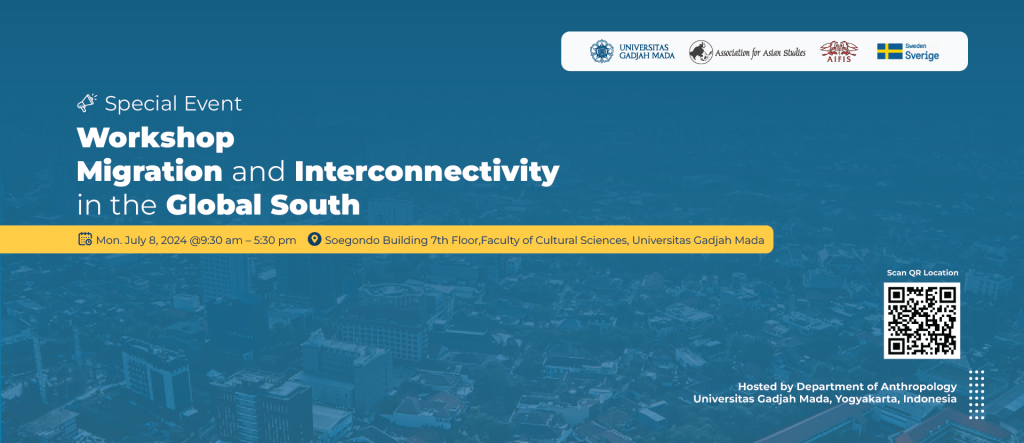Overview
Migration is a distinctive behavior that affects all living creatures. Remains of homo sapiens dating back more than 200,000 years demonstrate that modern humans were already actively engaged in expansive travels across various parts of Africa. Whether caused by seasonal changes, food supply or various threats and predations, causes for human movements across various landscapes have increased throughout the centuries and have assumed greater complexity.
While nomadism, commuting and tourism are transitory in nature, human migration is often defined as the permanent change of residence by an individual or a group of individuals. Nowadays, such spatial mobility can be internal or international, voluntary or involuntary, caused by armed conflict or non-anthropogenic factors. Mobility through land, sea and air are additional circumstances that provide further insight into the ways in which human mobility takes place. In addition, their legality or clandestine nature offers a spectrum of cases that include border-crossing, economic migrants, trafficking, forced migrations with major implications in terms of human rights, change of identity, dispossession, state violence etc. By way of example, the partition of India in 1947 resulted in more than 14 million displaced Muslims, Hindus, and Sikhs making this particular event one of the largest and most brutal mass migration in human history with long-lasting impact across Asia, Europe and North America.
The Association for Asian Studies (AAS), with the support of the Swedish International Development Cooperation Agency (SIDA), is pleased to invite applications from early career scholars and practitioners from Asia to participate in a workshop on “Migration and interconnectivity in the Global South”. This workshop is convened by the Association for Asian Studies (AAS) and will be hosted by the Department of Anthropology, Universitas Gadjah Mada (UGM) in Yogyakarta, Indonesia on the 8th of July 2024.
The one-day workshop is designed to foster conversations between and across various geographical, political, and economic vantage points on migration in the Global South while exploring opportunities for further academic exchange between the participants. This gathering will create an opportunity to debate migration from various approaches, including knowledge creations, dynamics, methods, ethics, and case studies across the Global South. This workshop also aims to provide participants with the tools needed to disseminate their overall work more broadly and engage in the contemporary debate on south-south migrations.
We are looking for applications from candidates who address different types of migrations. Possible topics include, but not limited to:
- Regular/irregular migration
- Children and migration
- Single/family migration
- Psychological impact of migration
- Migration, xenophobia and racism
- Bureaucracy and migration
- Voluntary/Forced migration
- Climate induced displacement
- Minorities and migration
- Economic migration
- Migration subjectivities
- Social networks and migration
- Human trafficking and other migration-related crimes
How to Apply
To apply, please submit
- a letter of interest including a 250-word abstract on a topic of your choice in connection with Migration in Global South;
- two migration-related questions (at least) that you would like to be addressed during the workshop;
- your CV by May 1st, 2024, at 11:59 pm EST using this registration link.
Between 18 and 20 applicants will be selected and results will be announced during the week of May 31th, 2024. For any questions about the workshop or the application process, please email
- Dr. Jerónimo Delgado-Caicedo: jeronimo.delgado@uexternado.edu.co
- Dr. Furrukh Khan: furrukh@lums.edu.pk
- Dr. Realisa Masardi: realisa.massardi@ugm.ac.id
Eligibility
- Applicants must be nationals of Asian countries or must be based in Asia;
- Applicants must have been accepted to present at the 2024 AAS-in-Asia in Yogyakarta;
- The workshop is open to graduate students (Master and PhD), policy experts, NGO/CSO practitioners, journalists, and public intellectuals.
Fellowship Funding Covers
The workshop will cover:
- One night accommodation in Yogyakarta (July 7th,) for up to USD 50 per night;
- Lunch and dinner on July 8th.

